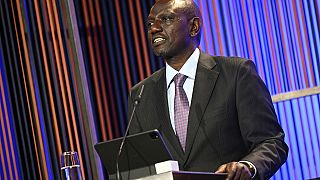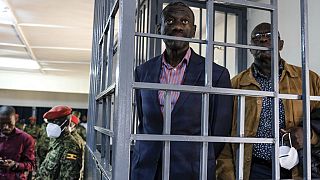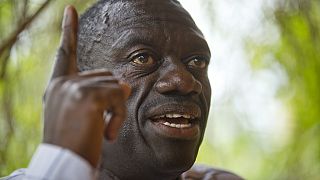Kenya
Kenyan opposition leader Raila Odinga announced Sunday he was calling off a protest on Monday and would embark on dialogue with the government after two weeks of chaotic street demonstrations.
Three people have died and properties and businesses been looted since anti-government protests erupted on March 20, alarming neighbours and allies of a country seen as a stable democracy in a volatile region.
Odinga, who has accused President William Ruto of stealing last year's elections, had called for protests twice a week and warned "Mega Monday" on April 3 would see his supporters "take back the country".
But on the eve of the march Odinga announced he was calling it off, after Ruto suggested they create a bipartisan parliamentary committee to work through concerns over the electoral process.
"We stand down our demonstrations for Monday, that is tomorrow, April 3, 2023. But in doing so, we want to emphasise that the right to assemble, to demonstrate, petition, and speak are iron-clad as provided for in our constitution," Odinga told reporters in an evening press conference.
However his party "reserve the right to call for demonstrations should this process not bear fruit", he said.
"Should there be no meaningful engagement or response from Hon (Honourable) Ruto to our counter-offer, we resolve to resume our demonstrations after one week."
In a nationwide address earlier in the evening, Ruto earlier appealed for Odinga to work through parliament, not the street.
"I urge my brother Raila Odinga, and the opposition, to call off the demonstrations, and to give this bipartisan approach a chance for us to take the country forward," he said, urging Kenyans to remain peaceful and law abiding.
- 'A lot of trouble' -
Kenya's Supreme Court unanimously upheld the results of August's elections that declared Ruto president but Odinga insists the poll was stolen, and released fresh claims this weekend that he says prove he won.
The opposition stalwart, who has lost five presidential elections, refused to recognise Ruto or his government and on Saturday urged him to "vacate his office" ahead of Monday's protest.
Ruto said a bipartisan parliamentary committee could explore possible reforms to electoral procedure, and urged his rival to seize this opportunity.
But he ruled out striking an alliance of any kind with his foe.
"Once you compromise accountability and oversight, you are in for a lot of trouble," Ruto said.
"Our position is that we want to engage our brothers and sisters on the other side on issues that are important to the people of Kenya... That way the system of checks and balances remains intact."
Kenya is viewed as a beacon of democratic stability in East Africa. The United States and Britain, among other foreign missions, have publicly called for restraint.
The African Union has also appealed for a peaceful end to the chaos that saw riot police firing tear gas and water cannon at protesters, and places of worship, properties, businesses and cars set aflame.
Meanwhile, at least 25 cases of attacks on journalists "at the hands of state and non-state actors" have been reported during the demonstrations, according to the Media Council of Kenya.
The United States said Friday said it was "deeply concerned" by the reports.










01:37
Record participation at 24th Sofi Great Ethiopian Run
01:36
Kizza Besigye faces Military Court as Uganda-Kenya jurisdiction row deepens
01:08
Mozambique: Opposition leader Venancio Mondlane faces legal action
01:10
Senegal parliamentary elections: Polls open, over 7 million expected to vote
01:03
Senegal’s legislative elections: Prime minister calls for retaliation against “attacks” on supporter
00:55
Mauritius' opposition coalition wins parliamentary election with 60 out of 62 seats